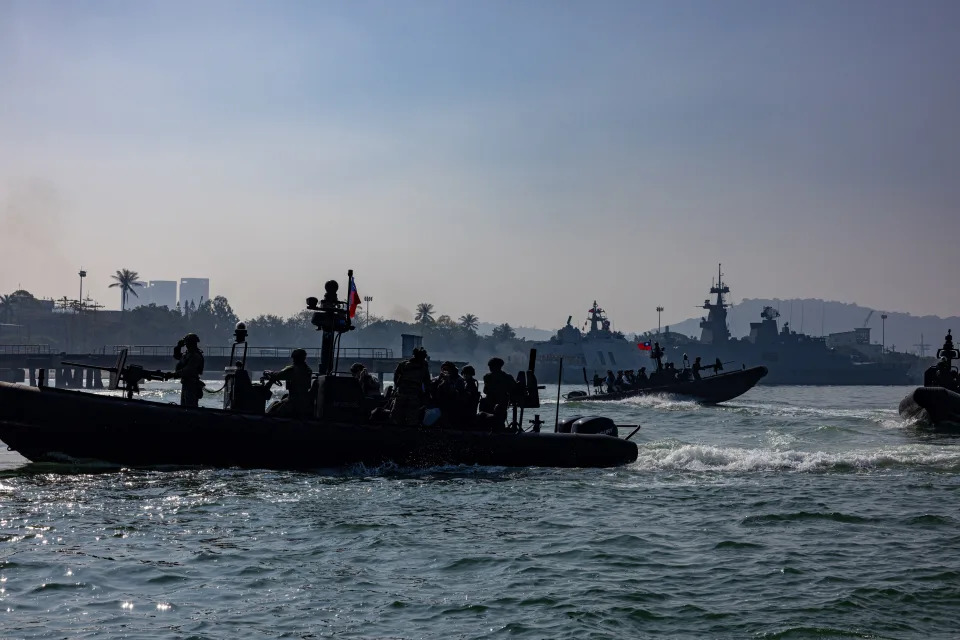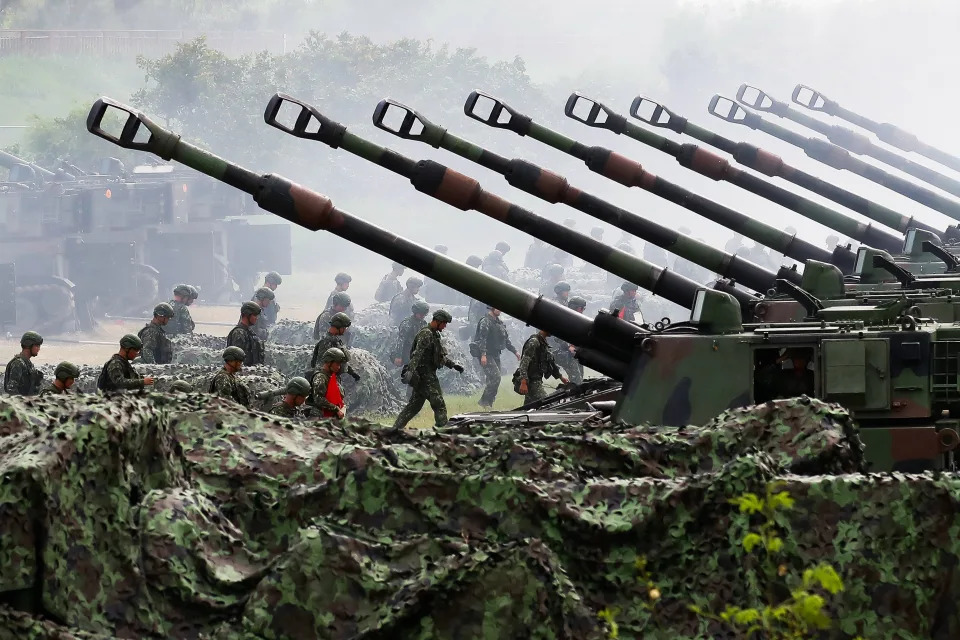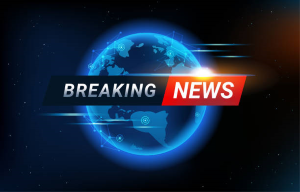-
China's could seize of some of Taiwan's most vulnerable islands within the next six months, war analysts warn.
-
An aggressive, short-of-war campaign could force the islands into a quarantine.
-
Involvement by the US and its allies will be critical in maintaining Taiwan's resistance, experts say.
Certain aspects of recent aggressive Chinese behavior around some of Taiwan's most vulnerable islands hint at how it could seize those territories within as little as six months, war analysts warn.
A short-of-war coercion campaign could raise questions about how the US and its allies should respond, a key element in maintaining Taiwan's resistance to Chinese control.
A new report from The Institute for the Study of War and the American Enterprise Institute details what a potential Chinese effort to seize Taiwan's Kinmen Islands could look like. The report assesses a recent spike in aggressive actions by the Chinese Coast Guard this year and notes how China could escalate its actions to take control of the island group within just six months.
Earlier this year, the people of Taiwan elected the Democratic Progressive Party's Lai Ching-te as president, a historic move that highlighted voters' concerns about curbing Chinese hostility and preserving Taiwan's autonomy.
Lai's win was unprecedented, marking a third consecutive presidential term for the DPP. It was also the least favorable outcome for China; Beijing has branded Lai a separatist and, in response to his win, pursued a series of punishments aimed at Taiwan.

Of those, the report said, the most notable appeared to be that China "launched new efforts to erode Taiwan's control over its outlying islands," switching from previously respecting Taiwan's "de facto jurisdiction in waters around Kinmen and Matsu" to denying Taiwan's claim over those areas.
During the exercises, China asserted "its right to conduct law enforcement patrols in these waters at will," the report said, noting a capsizing incident off Kinmen as a catalyst for developments involving the boarding, searching, and detaining of ships.
Kinmen and Matsu are two vulnerable islands in close proximity to mainland China, sitting off the coast of Xiamen and Fuzhou, respectively. Over the past few months, Chinese activities, particularly by the Coast Guard, around them have increased, notably spiking in May during Lai's inauguration,as well as during a massive Chinese military drill surrounding Taiwan later.
China's regular incursions into Taiwan's waters are a concern, but the report says that an escalatory turning point could involve China using its Coast Guard "to set up a 'quarantine' zone around Kinmen and prevent the delivery of any additional weapons or 'contraband' to the islands"
In that case, China could then "search all Taiwanese vessels passing into this zone to confiscate supposed 'contraband' and arrest 'separatists.' The quarantine still allows most civilian ships to pass after an inspection but blocks the passage of most ROC [Republic of China] government vessels," the report said.
Unlike a blockade, an act of war which prevents any and all movement whatsoever into an area, a quarantine, such as the US approach during the Cuban Missile Crisis, wouldn't be considered the same way, as they restrict only the movements of certain goods.
The line between the two is notably thin and, in a China-Taiwan scenario, would probably come down to controlling the narrative and how information about the incident was disseminated. It's difficult to know how those actions might be perceived.

China could maintain the status of a quarantine by framing its actions around its efforts to prevent the movement of weapons and what it calls 'contraband.' With its quarantine, China could effectively cut off Kinmen and/or Matsu's access, communications, and connections to the rest of Taiwan, leaving them isolated and potentially forcing them to succumb to Beijing's control.
Perhaps the biggest problem here is that such an event would put the US and its allies in a grey area where the proper response is potentially less clear to decision-makers. In the near-term, this could be further complicated by US domestic politics.
Another report from the conflict and security experts at the Institute for the Study of War and American Enterprise Institute published earlier this year said the US was unprepared for a "coercion campaign that remains far short of invasion but nevertheless brings Taiwan under Beijing's control," noting that many elements of such a campaign were already underway.
Concerning the potential for the quarantine of Kinmen and Matsu in the near term, though, there are a few steps the US must take to deter — and possibly counter — Chinese actions, the new report said.
The US, Taiwan, and their partners should, the report argued, be doing the following: "pre-bunking" Chinese "propaganda narratives that justify such a campaign, strengthening the resilience of communication infrastructure in Taiwan's outlying territories, and bolstering Taiwan's maritime law enforcement around the islands."

The report's authors also argue the US should also beef up its defense commitment to Taiwan, both to alleviate the Taiwanese people's fears the US won't come to its aid and to communicate deterrence to Beijing. And in case of an attempt to quarantine or a successful quarantine, the US should come to Taiwan's assistance and significantly increase "its troop deployments and arms sales to Taiwan, coordinating joint coast guard patrols with Taiwan and other partners, and amending relevant laws to help protect Taiwan's outlying islands from further coercion," the report said.
In this situation, Washington finds itself in a precarious situation, needing to maintain a working relationship with China while showing support for Taiwan, but any failures in defending Taiwan could have profound implications for other alliances.
"The United States' failure to effectively respond to such a crisis would have cascading negative effects on the faith of US allies like Japan, South Korea, and the Philippines in the US defensive umbrella," the authors note. Therefore, "maintaining Taiwanese sovereignty over these islands is thus a precarious but vital task."
AfriPrime App link: FREE to download...
https://www.amazon.com/Africircle-AfriPrime/dp/B0D2M3F2JT
Taiwan sentences eight soldiers for spying for China
Eight Taiwanese military servicemen were sentenced on Thursday to up to 13 years in prison for spying for Beijing, with the court saying they did it for the money.
China claims self-ruled Taiwan as its territory and has ramped up military and political pressures on the democratic island in recent years.
The two sides split in 1949 after a civil war and have been spying on each other since.
The defendants in Thursday's sentencing were active-duty soldiers "willing to collect intelligence for China that caused the leak of important secrets," a Taiwan High Court statement said. "They were seduced by money."
Among them was a man surnamed Hsiao, who was the key to recruiting soldiers to join "a network for China" to gather and hand over information, the court said.
He received the heaviest jail term: 13 years.
Another was sentenced to five-and-a-half years for shooting a "psychological warfare video to indicate his willingness to surrender to the People's Liberation Army", while one man received a nine-year sentence for "conspiring to defect" to China by flying a military helicopter.
"Their actions violated their official duties of being loyal to the country, defending the country and the people... to seriously endanger national security and the well-being of the people of Taiwan," the court said.
All eight men can appeal the ruling.
Prosecutors had initially indicted 10 people in November in the case. One was acquitted due to a lack of evidence.
The other -- a retired soldier surnamed Chen -- was identified as the person who enlisted Hsiao.
But the court said it would handle Chen's case separately after he fled to China. He is currently wanted in Taiwan.
Thursday's sentencing was the latest in a recent string of spying cases.
Last month, a sergeant who worked at a navy training centre was indicted for allegedly photographing and leaking confidential defence information to Beijing.
AfriPrime App link: FREE to download...
https://www.amazon.com/Africircle-AfriPrime/dp/B0D2M3F2JT
Taiwan president to visit frontline islands at centre of China tensions
Taiwan President Lai Ching-te will on Friday make his first visit since taking office in May to the sensitive Kinmen islands that sit next to the Chinese coast and have been the scene of stepped up tensions between Taipei and Beijing.
Taiwan has controlled Kinmen, and the Matsu islands further up the Chinese coast, since the defeated Republic of China government fled to Taipei in 1949 after losing a civil war with Mao Zedong's communists. No peace treaty or armistice has ever been signed.
The scene of on-off fighting during the height of the Cold War, China's coast guard has since February conducted regular patrols around Kinmen following the death of two Chinese people on a speedboat which Beijing blamed on Taipei.
Lai's office said on Thursday that he would travel to Kinmen on Friday for events marking the 66th anniversary of a key military clash with Chinese forces, better known internationally as the start of the second Taiwan Strait crisis.
"Located in the first island chain, Taiwan faces the immediate threat of China. But Taiwan will not be intimidated," Lai told a security forum in Taipei on Wednesday.
China views democratically-governed Taiwan as its own territory and has repeatedly denounced Lai as a "separatist". He rejects Beijing's sovereignty saying only Taiwan's people can decide their future, but has also offered talks with China.
Kinmen faces the Chinese cities of Xiamen and Quanzhou and at its closest is less than two kms (1.2 miles) away from Chinese-controlled territory.
The 1958 crisis was the last time Taiwanese forces battled China on a large scale.
In August of that year, Chinese forces began more than a month of bombardment of Kinmen, along with Matsu, including naval and air battles, seeking to force them into submission.
Taiwan fought back at the time with support from the United States, which sent military equipment like advanced Sidewinder anti-aircraft missiles, giving Taiwan a technological edge.
The crisis ended in a stalemate, and Taiwan observes Aug. 23 every year as the date it fended off the Chinese attack.
Late Wednesday, Taiwan's defence ministry held a concert in Taipei that celebrated the "glorious" anniversary, with songs about shooting down Chinese MiG fighter jets and bemoaning the "red catastrophe" of communism.
Formerly called Quemoy in English, Kinmen today is a popular tourist destination, though Taiwan maintains a significant military presence.
AfriPrime App link: FREE to download...
https://www.amazon.com/Africircle-AfriPrime/dp/B0D2M3F2JT
China's 'growing authoritarianism' won't stop with Taiwan: Lai
Taiwanese President Lai Ching-te warned Wednesday that China's "growing authoritarianism will not stop with" the island and urged democratic countries to unite to curb its expansion.
China claims Taiwan as part of its territory, and a senior Chinese Communist Party official said Tuesday that Beijing was confident of "complete reunification" with the island.
Speaking at the annual Ketagalan Forum on Indo-Pacific security in Taipei, Lai cautioned that Taiwan was not "the only target" of Beijing.
"We are all fully aware that China's growing authoritarianism will not stop with Taiwan, nor is Taiwan the only target of China's economic pressures," he told politicians and scholars from 11 countries attending the forum.
"China intends to change the rules-based international order. That is why democratic countries must come together and take concrete action. Only by working together can we inhibit the expansion of authoritarianism."
Lai, who was sworn in on May 20, has been labelled a "dangerous separatist" by China for his staunch defence of Taiwan's sovereignty.
Beijing has ramped up military and political pressure on Taiwan in recent years, and launched wargames days after Lai's inauguration, encircling the island with fighter jets and naval vessels.
Taiwan's military has been reporting near-daily sightings of Chinese warships around its waters, as well as sorties by fighter jets and drones around the island.
But Lai said China's "military expansionism" was taking place elsewhere, pointing to Beijing's joint exercises with Russia in the South China Sea, Western Pacific and Sea of Japan.
"Such actions are intended to intimidate China's neighbours and undermine regional peace and stability," he said.
"Taiwan will not be intimidated. We will take responsibility to maintain peace and stability in the Taiwan Strait."
Lai has repeatedly made overtures for dialogue with Beijing but talks have effectively dried up since the 2016 election of his predecessor, Tsai Ing-wen, who has long said Taiwan is not part of China.
"Taiwan will neither yield nor provoke ... On the condition of parity and dignity, we are willing to conduct exchanges and cooperate with China," Lai reiterated Wednesday.
AfriPrime App link: FREE to download...
https://www.amazon.com/Africircle-AfriPrime/dp/B0D2M3F2JT
Taiwan defence spend to outpace GDP growth as China threat rises
Taiwan's defence spending will rise 7.7% next year, outpacing expected economic growth, the cabinet said on Thursday, as the island adds more fighter jets and missiles to strengthen deterrence against a rising threat from Beijing.
China, which views democratically-governed Taiwan as its own territory, has ramped up military and political pressure over the past five years to assert those claims, which Taipei strongly rejects.
Taiwan's cabinet said following a regular weekly meeting that 2025 defence spending would rise 7.7% year-on-year to T$647 billion ($20.25 billion), accounting for 2.45% of gross domestic product - up from 2.38% this year - and exceeding the government's expectation for economic growth of 3.26% for the year.
The spending includes a special budget worth T$90.4 billion to buy new fighter jets and ramp up missile production. That was part of the military's extra spending worth T$240 billion announced in 2021 over five years.
Hsieh Chi-hsien, head of the defence ministry's comptroller bureau, told reporters defence spending reaching 3% of GDP was a goal they were hoping to reach, and that at the moment Taiwan's defence spending is "growing steadily".
"We will not join in an arms race with other countries. We will increase (spending) steadily according to our needs," he said.
Future spending also depends on whether Taiwan could acquire "key and important" equipment, Hsieh added, without elaborating.
Taiwan's government has made military modernisation a key policy platform and has repeatedly pledged to spend more on its defences given the rising threat from China, including developing made-in-Taiwan submarines.
China's air force flies almost daily missions into the skies near Taiwan, and in May staged war games around the island shortly after President Lai Ching-te took office, a man Beijing brands a "separatist". Lai rejects China's sovereignty claims, saying only Taiwan's people can decide their future.
The budget will still need to be passed by parliament, where the ruling Democratic Progressive Party (DPP) lost its majority in January elections.
Taiwan's main opposition party, the Kuomintang, has repeatedly expressed its support for firming up the island's defences, though it is currently involved in a stand off with the DPP about contested reforms to give parliament greater oversight powers the government says is unconstitutional.
China is also rapidly modernising its armed forces, with new aircraft carriers, stealth fighter jets and missiles.
China in March announced a 7.2% rise in defence spending for this year to 1.67 trillion yuan ($234.10 billion) outpacing the economic growth target of around 5% for 2024, though accounting for only some 1.3% of GDP according to analysts.
Successive U.S. administrations have pushed Taiwan to modernise its military and spend more. The United States is Taiwan's most important arms provider and international backer, despite the absence of diplomatic relations.
Speaking at a security forum in Taipei on Wednesday, Nikki Haley, a United Nations ambassador under the Trump administration, praised Taiwan's commitment to spending more on defence.
"Other free nations should learn from them, especially many U.S. allies," she said.
AfriPrime App link: FREE to download...



